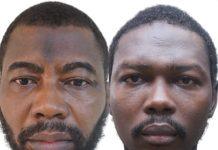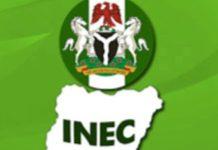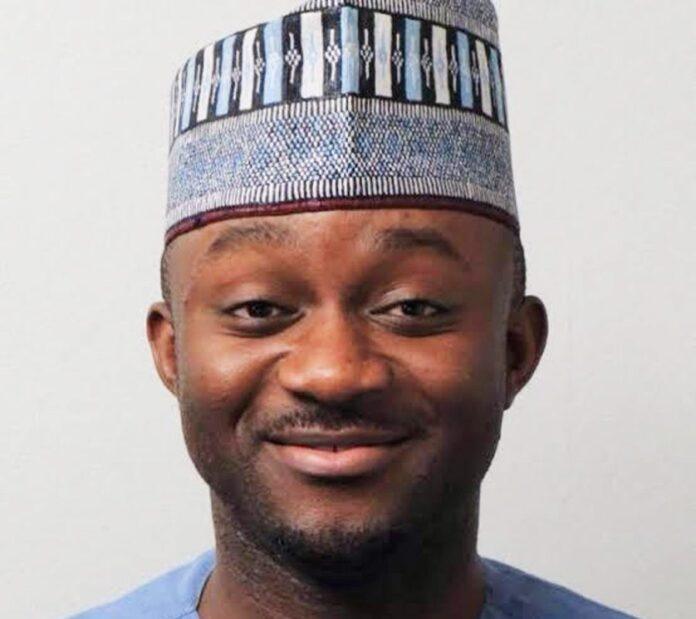represents Yiaga Africa as its Executive Director. His topics in this conversation include the nationwide by-election that was held on Saturday. He criticizes the part politicians play in elections, the need for the National Assembly and the Independent National Electoral Commission (INEC) to improve the electoral process, the electorate’s contribution to democracy, and more. The following are extracts from Joy Anibogu:
What are your thoughts on the string of accusations and the validity of Saturday’s by-election?
It’s wonderful that this election has finally taken place. Although it has not yet been resolved, we are certain that it will. Since this by-election should have been over last year. It was not carried out. I am aware that the fact that the independent National Electoral Commission (INEC) was not given the funds necessary to conduct the election was one of the factors contributing to its lengthy duration. And that is problematic in and of itself because depriving the electoral commission of the necessary funding is one method to capture INEC and prevent it from operating. Therefore, INEC lacked the resources necessary to hold the election, which is why it is being held today. Three things, however, are evident from today’s election. The first is that the fundamental principles of democracy and legitimate elections are still disregarded by our political elite. It is completely unacceptable in and of itself to look at areas like Kano, where there was a massive thugs’ mobilization. This is evident, then. Additionally, I’m not sure how the general elections in 2027 will turn out.
But does it not imply that voters, the electorate, are being taught the fundamentals of democracy?
No, not precisely. First, a number of problems exist. For what you refer to as socio-economic disparities, consider thuggery. Additionally, there is a notion that suggests that thuggery is fueled by the lack of prospects, employment, and support from the state. The second is that when people believe that politicians are stealing public money and failing to deliver, they want to be used as tools by those same politicians to sabotage the process. so that they can share in the cake. Thus, that is one of the problems causing this. However, I would venture to suggest that if you go elsewhere and have heard the Resident Electoral Commissioner (REC) speak before, there was an attempt to sabotage the process. You can also notice it if you look at Ogun State. In my opinion, the events of today are but a prelude to what will occur in 2027.
Would it be a good prelude to the 2027 elections regarding the two qualities I stated earlier—integrity and management?
Indeed. for a few different reasons. First, when the security forces chastised those thugs in locations like Kano, I believe they were very responsive. Additionally, arrests have been made in Kaduna and Kano. A political party agent and two INEC officials were also detained, as we have seen. As a result, they responded quickly. However, it’s a by-election. The 2027 elections will be overburdened since they will be held throughout the entire nation. I want to give them a pass, though, and I want to praise the security services for their promptness during today’s by-election. This amount of turnout and the reasons why voters did not come out, however, make up the third element. There are a number of possible causes. First, weariness can be the cause. Secondly, they simply do not believe that their life will be changed by voting in this election. However, people do not respond by staying away when they are told that their votes are not counted because doing so will allow the minority to rule over the majority. In a democracy, that is an aberration in and of itself.
In elections, you must be there and make it harder for bad leaders to win. However, staying out won’t resolve this.
Is public awareness being used by political parties and even non-governmental organizations like yours to speed up this kind of campaigning?
We’re doing our part, yes. The media is also contributing as a civil society. However, I believe democracy is a process. Democracy necessitates negotiation, debate, and the ability to persuade others. As civic society, it is what we will keep doing. We shall keep an eye on the results of our elections and any gaps. Those holes will be identified and made public. As civil society, we will not compromise on the process of holding our elected officials and institutions accountable. We’re going to keep holding INEC to greater standards. Only then can democracy truly flourish. Therefore, I believe that, in spite of the difficulties civil society organizations have, they are largely fulfilling their mandate. In the same manner, the media is carrying out its function. However, the kingmakers in a democracy are ultimately the people. Additionally, it is another opportunity to send a strong message to the political elite that winning an election does not equate to legitimacy if they do not raise their voice when there other elections throughout the state with low turnout.
And after 26 years of democratic progress, it appears that computerized voting, or the Bimodal Voter Accreditation System (BIVAS), is a myth. Additionally, in other regions, such as African nations, results from the wards are released spontaneously to the local government offices and other locations. Why is it that doing this in Nigeria is so hard?
It’s not hard to do, in my opinion. The political class’s mindset, in my opinion, is what makes it challenging. They are the ones tampering with the election procedure. The process was made more sanitary with the introduction of the BIVAS and INEC Result Viewing Portal (IReV). In addition to improving voter accreditation speed, the BIVAS was implemented to restrict proxy and multiple voting. For what reason? Because politicians have historically manipulated elections by encouraging people to cast multiple or double votes. Therefore, I believe that the fact that these technologies are here and will remain such is crucial, but three factors need to be considered. First, the Supreme Court ruled that IReV is not included in the process of collation.
What must be done by the National Assembly?
The National Assembly, particularly the Senate and the House of Representatives, should mandate electronic transmission, even if I disagree with the Supreme Court. As a result, make both manual and electronic transmissions legally required. The second is that there is uncertainty over the current state of INEC’s rules, regulations, and guidelines. The standards and regulations are part of the legal framework, according to the court, and you must largely abide by their terms. However, it also states that, as electronic transmission is not covered by the Act, it cannot be introduced through regulations and that the regulations are not a part of the legal framework. Third, and maybe final, is the need for increased transparency and the requirement that INEC expose the back end of the BIVAS and the back end of the IReV to independent audit and examination. Voters and stakeholders can be assured that there is no corruption or manipulation of the INEC BIVAS and IReV servers’ back end in this way. Because elections cannot be held in a way that is opaque and still expect people to trust you. You must be transparent if you want others to trust the procedure and the result. For this reason, people are stating that they require a new INEC, and that INEC should be able to do all of these things. Only by strengthening our democracy will we be able to increase the number of people who vote in elections and create leaders who will answer to the Nigerian people.
Indeed, but you cannot stop Nigerian politics from using money. Money is a crucial component in any political environment, after all. Here, money is utilized as an inducement, but consider the enormous amount spent on the U.S. presidential election. To what extent does that benefit our democratic culture?
I heard your first news report, in which one of the parties claimed that the funds were intended for logistics. Remember that it’s only election day, and that’s around 25 million people. At a time when Nigerians are struggling to afford even one meal a day, you have one person or even a political organization with that much money. It’s unclear if it’s for logistics or vote buying, but it also indicates how costly it is. Therefore, for example, if a political party or candidate has 200 polling places in a certain constituency, you must send party agents to those polling places. You must reimburse the party agents. All of them need a lot of logistics, but on election day, you cannot have one person with that much money and not raise suspicions. These are the essential questions that we must thus pose. On election day, why do you have more than N25 million to give to your party agents? There are alternative distribution methods. You have the ability to make transfers. It was also necessary to perform those sooner. Yes, we do require a comprehensive investigation by the security authorities. However, if it is proven that this is for vote buying, you must prove two things because you are aware that it is illegal. We use the terms “actus reus and mens rea” in law. The conduct, the intention, and the standard of proof will all be taken into consideration. However, the fact that the security forces detained wealthy people not only in Kaduna State but also in Ogun or Oyo State is encouraging. It proves that we’re becoming better.
Having an electoral tribunal to review incidents like these election-related frauds, however, does not appear to be a progress. Would it contribute to the development of Nigeria’s democratic culture?
According to others, INEC’s prosecution responsibilities under the electoral act is the reason we haven’t been able to prosecute election offenses.
However, the key question is whether bribery is classified as a criminal offense under the criminal and penal codes. If you disturb the peace, many of the offenses that we classify as electoral offenses are already crimes that have been established in our penal law. As INEC claims that these tasks are stifling it, why must we burden it with the ongoing prosecution of electoral offenders? Therefore, the establishment of an electoral offenses commission is imperative. I’m all with that. Nonetheless, a number of precautions must be taken. Firstly, the Attorney General of the Federation should not have any authority over the commission’s operational activities. The Attorney General of the Federation’s constitutional authority to suspend criminal proceedings and conduct internal prosecutions must be eliminated in regard to election offenses. In order to safeguard the prosecution of electoral criminals, other necessary steps must be performed in addition to the creation of an electoral offenses commission. Nevertheless, there is general impunity if electoral criminals are not prosecuted. And the big question is that, as one of the lawmakers mentioned to me a few weeks ago, we are the ones who commit these electoral offenses. Specifically, we are referring to the political class, who not only commit these crimes but are also the ones who draft legislation. In all honesty, do you think they’ll create rules that contradict themselves? It isn’t feasible. These, then, are the problems.
Join Television Nigerian Whatsapp Now
Join Television Nigerian Facebook Now
Join Television Nigerian Twitter Now
Join Television Nigerian YouTUbe Now






















